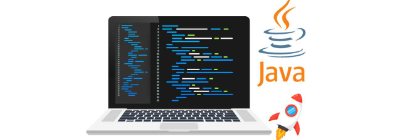EPF, EPS contribution limit may be hiked to Rs 21,000 soon: How it can impact you If the proposal goes through, this will be the third hike in the wage ceiling limit. A hike in the EPFO wage ceiling limit will impact salaried employees in various ways
The central government may soon raise the wage ceiling limit under the Employees’ Provident Fund (EPF) scheme to Rs 21,000 from Rs 15,000 currently. The government last increased the wage limit threshold in September 2014, more than doubling it from Rs 6,500 to Rs 15,000.As per a news report in The Economic Times, “the central government is planning to raise the wage ceiling limit and lower the headcount threshold under the Employees Provident Fund Organisation (EPFO). The move is aimed to enhance and widen the coverage for bolstering social security for workers.”
The hike in the wage ceiling limit will impact the contribution made by employees towards EPF and the Employees’ Pension Scheme (EPS).
Here is a look at how a hike in the EPF wage ceiling limit will impact you.
More employees to be covered under EPS pension scheme
The provident fund laws state that if an employee’s basic salary exceeds Rs 15,000 per month, they cannot join EPS even if they are part of the EPF scheme.Now, if the wage ceiling limit is hiked to Rs 21,000, employees who join the EPF scheme with a basic salary exceeding Rs 15,000 will be eligible to join EPS.
Once the proposal is approved, individuals with a basic monthly salary of Rs 21,000 will be able to enroll in the EPS scheme. This change will also pave the way for these employees to qualify for a pension upon their retirement.
However, employees should note that if they become an EPS member, the employer’s contribution to the EPF account will decrease. This is because, at present, both the employee's and employer's contributions are deposited into the EPF account. This results in a larger EPF corpus. However, once these employees join the EPS scheme, 8.33% of the employer's 12% contribution will be directed to the EPS account.
Lower EPF, higher EPS contributions
A hike in the EPF wage ceiling limit will also lead to higher EPS contribution. Currently, a contribution of Rs 1,250 per month is deposited to the employee’s EPS account. The current EPS laws allow an individual to deposit a maximum of Rs 1,250 to the EPS account. The EPS contribution is calculated on the wage ceiling limit from the employer’s contribution, i.e., 8.33% of Rs 15,000. The balance of the employer’s contribution is deposited to the employee’s EPF account along with the employee’s own contribution.If the wage ceiling limit is hiked to Rs 21,000 monthly, then Rs 1,749 per month will be deposited to the EPS account. Due to the hike in EPS pension contribution, a lower balance will be deposited to the employee’s EPF account.
Here is an example to understand this. Suppose an employee’s current basic salary is Rs 25,000 per month. Her employer contributes 12% of Rs 25,000 to the EPF account — Rs 3,000 per month. Out of this 12%, 8.33% goes to the EPS account, the pension account. For EPS contribution, the wage threshold is Rs 15,000. Hence, the EPS pension contribution is restricted to Rs 1,250. The balance of Rs 1,750 (Rs 3,000 minus Rs 1,250) goes into the EPF account. If the wage threshold is enhanced to Rs 21,000 per month, the EPS pension contribution becomes Rs 1,749 per month. The balance amount of Rs 1,251 (Rs 3,000 minus Rs 1,749) will be deposited in the EPF account.
Higher pension at retirement
A hike in the EPF wage ceiling limit will also lead to a higher pension amount at retirement. The formula to calculate EPS pension at retirement uses the wage ceiling as the maximum average monthly salary. If the wage ceiling limit is raised to Rs 21,000, the pension amount received will also see an increase.The formula for calculating EPS pension is: (Number of years of pensionable service X Average monthly salary for 60 months)/70.
Here is an example of how this wage ceiling increase will impact the pension amount an EPF member will receive during retirement.
Suppose an employee’s pensionable service period is 30 years. The monthly salary will be calculated by taking the average pay of the 60 months before retirement. However, if the basic salary of the employee during the 60 months is higher than the current wage ceiling limit of Rs 15,000 per month, then Rs 15,000 will be considered as the salary for a month to make the calculation for pension. Further, if an employee has worked more than 20 years, then 2 years are added as a bonus to the service period. The monthly pension an EPS member is eligible to receive will be Rs 6,857, i.e., (32x15,000)/70.
However, if the wage threshold is enhanced, the average monthly salary will become Rs 21,000 for the purpose of calculation. The monthly pension an employee is eligible to receive in such a case will be Rs 9,600, i.e., (32x21,000)/70. So, an increase of Rs 6,000 in the wage threshold takes the monthly pension up by Rs 2,743.
How EPF contribution is made
According to the Employees’ Provident Fund and Miscellaneous Provisions Act, 1952, both an employee and employer make matching contributions of 12% each of basic salary, dearness allowance and retaining allowance, if any, to the EPF account.The employee’s entire contribution is deposited in the EPF account.
On the other hand, out of the employer’s contribution of 12%, 8.33% is deposited in the EPS account and the balance 3.67% is deposited in the EPF account. On the 8.33% EPS contribution, there is a limit of Rs 1,250. Hence, the balance from the EPS account as well as 3.67% from the employer’s contribution is deposited in the EPF account.
This story originally appeared on: India Times - Author:Faqs of Insurances





















































